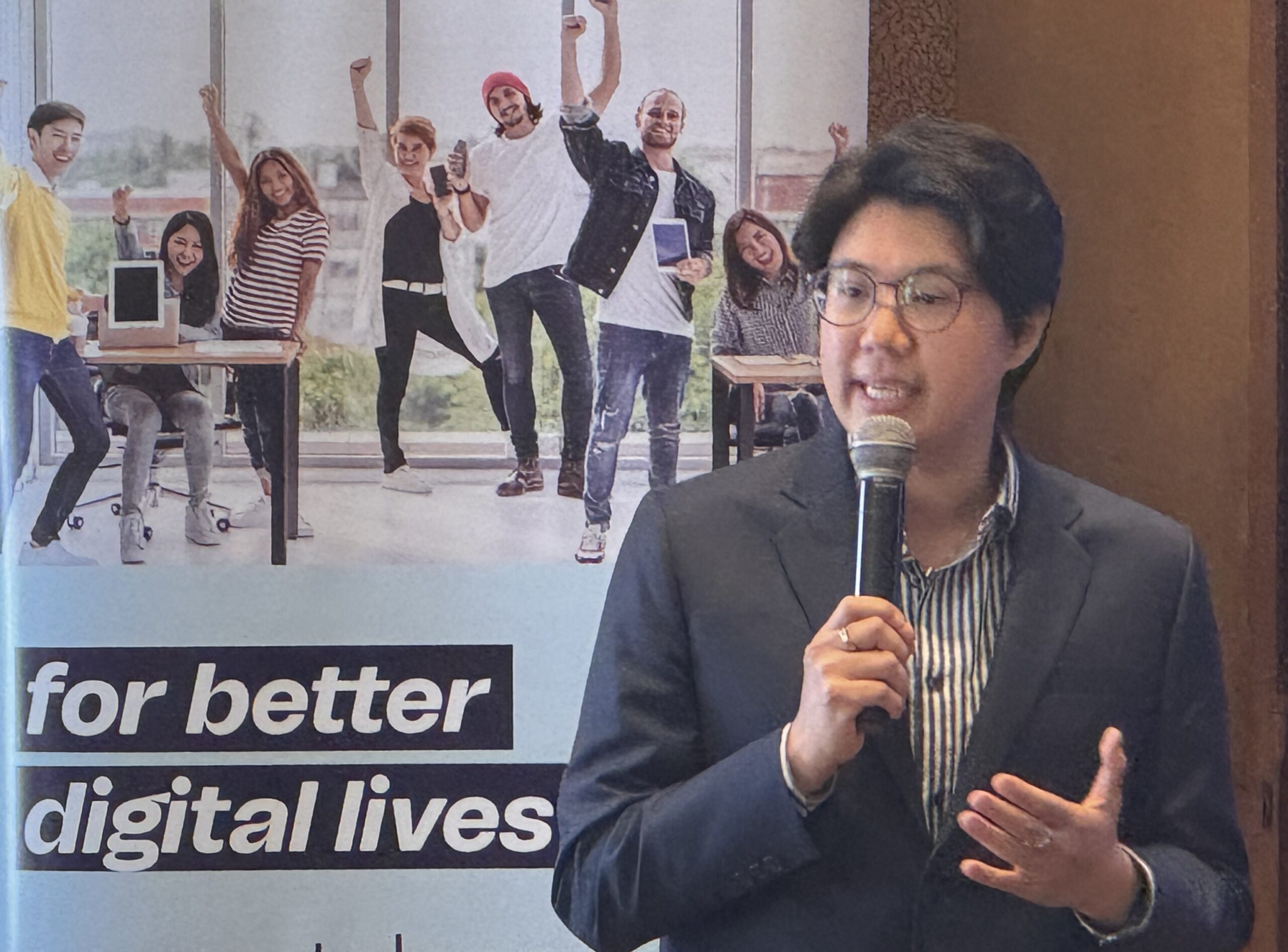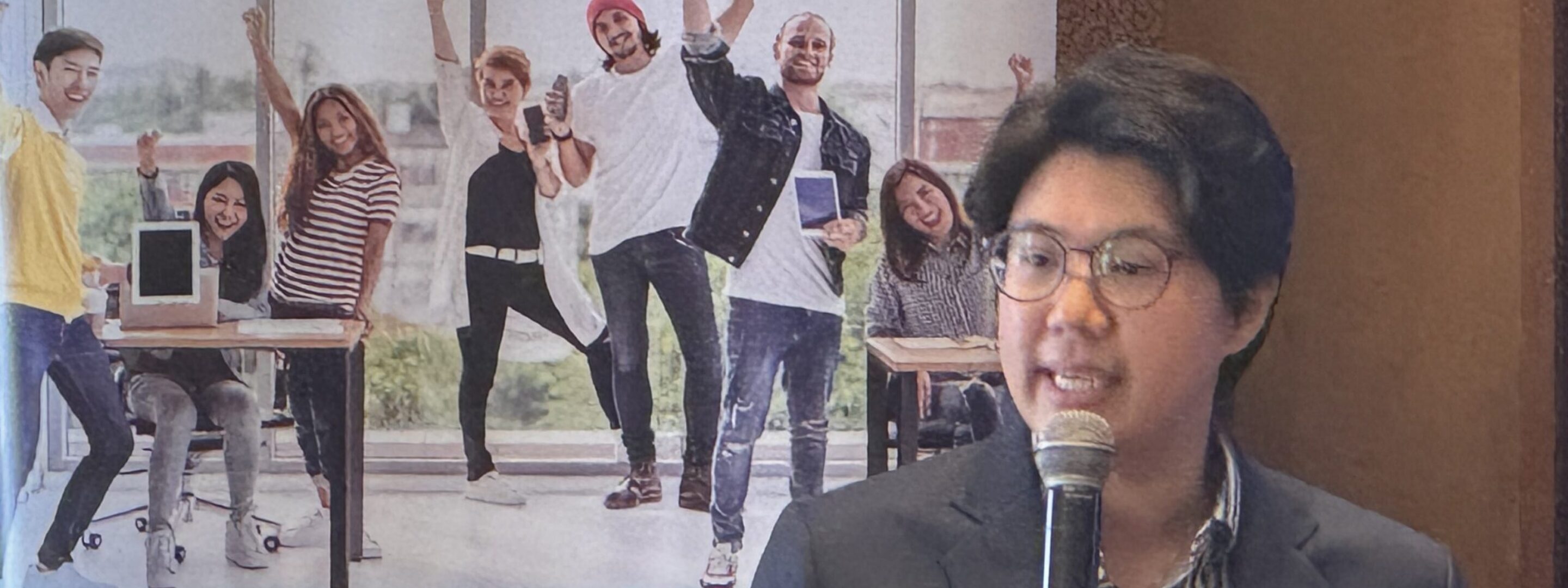Building Leaders in an AI-powered World
Building Leaders in an AI-powered World

It has never been more exciting or challenging time to be a business leader than in today’s fast-paced, AI-powered world. The business environment is evolving rapidly, with new technologies, geopolitical tensions, and different generational perspectives all coming into play. For Kulnapa “KC” Chanachompoo, Director of Competency Development at Telenor Asia, the opportunity to shape the next generation of executives capable of navigating this dynamic landscape is incredibly motivating.
KC’s interest in leadership development started at an early age. “I was really interested in understanding human behaviour: What makes people who they are, what factors contribute to interpersonal attraction, and what influences individuals to follow others.”
This curiosity led her to study and practice psychology, before following her passion for learning and development (L&D), particularly in leadership. KC explains that while L&D aims to foster a culture of learning, leadership development focuses on cultivating leadership competencies and behaviours for future organisational growth and change. This motivates her as leaders have a huge impact on the organisation.
Over the years, she has witnessed significant changes to the leadership role. 10-15 years ago, the focus was on efficient management and prioritising getting things done. Now, modern leaders need to navigate rapidly changing and uncertain environments where they must balance short-term performance goals with long-term strategic visions.
Enabling the Ambidextrous Leader
Achieving these dual goals is often difficult. Most leaders have traditionally risen through the ranks because they are either good at driving performance or have excelled in transformation. Only a few are naturally good at both.
“Telenor has a broad range of programmes to develop talents into leaders, but these programmes end once you are appointed into a CXO role. When we asked what was next for leaders, we realised that we needed a framework that will future proof our companies and their leadership in Asia.”

With this aim, Telenor recently launched a senior leadership programme with IMD business school in Singapore on Ambidextrous leadership. Leaders, from several global units as well as operating companies in Asia have an opportunity to develop skills and mindsets to balance the organisation’s need to both perform and transform.
“We are extending range, not change, as these senior leaders already excel in what they are doing. So, if you are good at performing, we focus on strengthening transformation skills, and vice versa,” KC explains.
Leadership in the Age of AI
New technologies like AI are changing the way all of us work. It is transforming our decision-making, how we gather information, and the way we conduct our work. For leaders, it is important to understand AI capabilities and its ethical implications. However, it does not change the fundamentals of leadership, as leaders still need to give direction, make decisions, and set employees up for success.
“The rapid introduction of new technologies like AI brings additional challenges for leaders. The elephant in the room is that many employees now are worried that AI will replace their jobs. As a manager, you need to restructure, reinvent job scopes and upskill your organisation. As a leader, you need to understand where these concerns are coming from and engage with employees to help change their mindsets.”
As an example, Telenor Asia’s recent “Digital Lives Decoded Thailand” study shows the significant untapped opportunity of use of AI in the workplace. Thai people are enthusiastically embracing a digital life and believe that AI will have a significant positive impact on all parts of society, the country trails behind other Southeast Asian markets when it comes to using AI tools for work.
“To accelerate adoption of AI tools in the workplace, we encourage leaders to be empathetic and inclusive, listen to employees’ concerns, and help them upskill and build understanding that new technologies work for them. By removing administrative and repetitive tasks, employees can evolve into more enriching roles and complex responsibilities.”

KC emphasises that it starts with the top leadership. “You need to have a clear understanding of how AI will impact your market, organisation, and customers. When you set direction, you need to bring employees along and create an environment where employees feel safe and included. It is only through upskilling that you develop internal capabilities that will companies to take full advantage of AI.
KC believes Telenor Asia is well positioned to navigate and support this transition into an AI-powered world from a people perspective. Enabling an AI empowered organisation is central to the Telenor Group’s AI-first strategy. As an engaged owner of leading telecom companies in four large Asian markets, Telenor Asia is committed to the region’s digital transformation, by building local technology champions capable of unlocking AI full potential, while upholding responsible AI principles.


